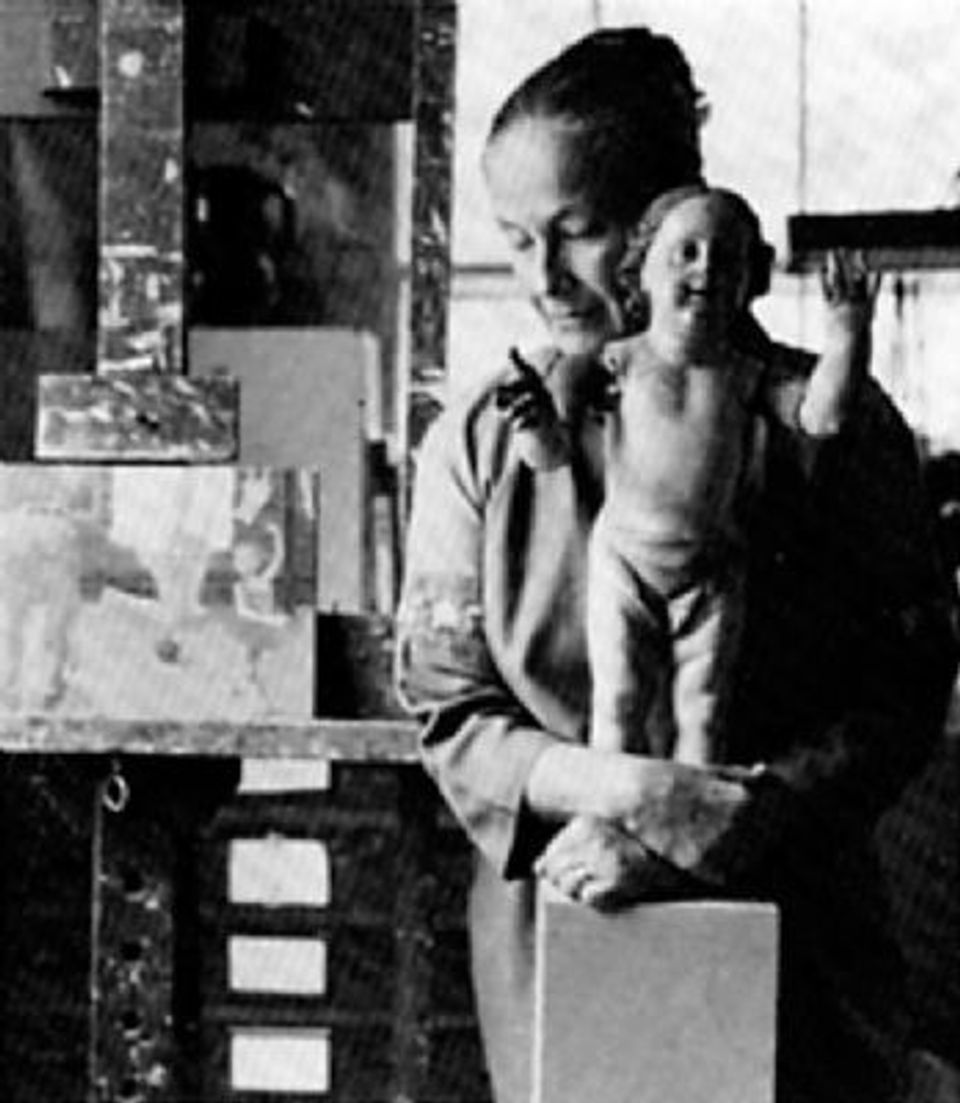Honoré Sharrer

- Also known as
- Mrs. Perez Zagorin
- Honore Sharrer
- Honore Desmond Sharrer
- Born
- West Point, New York, United States
- Died
- Washington, District of Columbia, United States
- Biography
Honore Sharrer took her first painting lessons from her mother, who had been a pupil of George Luks. She studied at the California School of Fine Art and at Yale, but left because of her feeling that "the school's academic discipline was … incapable of stimulating the artist to seek what was valuable to express." During World War II Sharrer worked as a welder in a San Francisco shipyard, then came to New York, where her paintings were featured in the Museum of Modern Art's Fourteen Americans exhibition in 1946. Over the course of her career Sharrer has made dramatic changes in subject matter and to some degree in technique. In her early "social realist" paintings she depicted American working people, then went through surrealist phase in which she twisted "everyday basic things" to make them funny. In her recent work she explores myth and fairy tale and combines disjunctive imagery to free herself from "the punishment of 'realism.' "
Virginia M. Mecklenburg Modern American Realism: The Sara Roby Foundation Collection (Washington, D.C.: Smithsonian Institution Press for the National Museum of American Art, 1987)
- Luce Artist Biography
Honoré Sharrer learned to paint from her mother, who often took the young artist into the country with a picnic to "paint all day" (interview with the artist, 2000). Sharrer studied at the Yale School of Fine Arts and in San Francisco and, when she was only eighteen, won a national competition sponsored by American magazine. During World War II, she worked a variety of jobs, including welding in a shipyard and creating storyboards for movies. Sharrer's images often have a slight air of unreality, but are based on everyday American experiences and painted in great detail. She disapproved of abstract art and in 1953 criticized its "fanatical paint-drippings" that she felt did not express "human" ideas. (Doss, "Sharrer's Tribute to the American Working People," American Art, Fall 2002)















